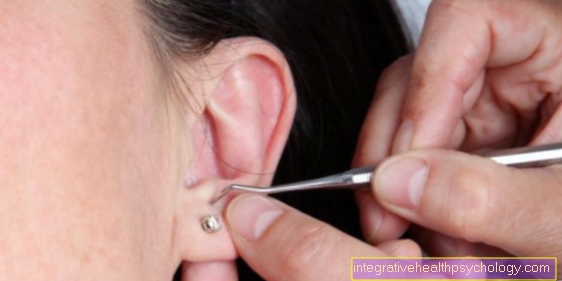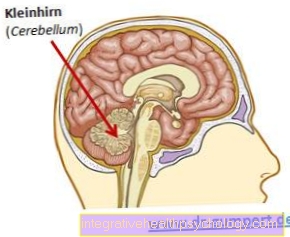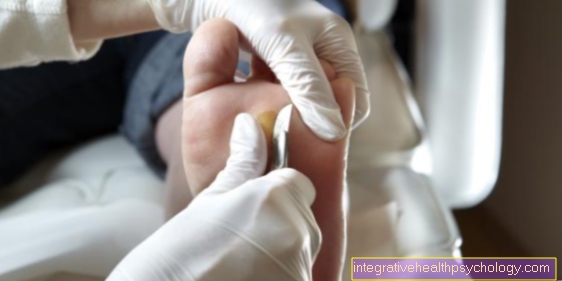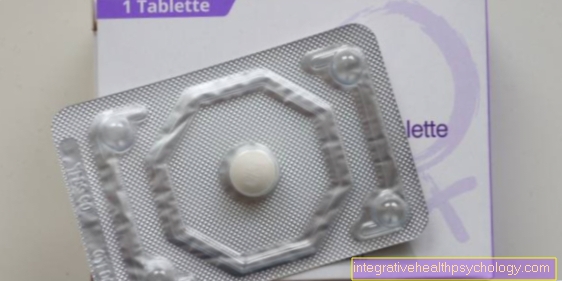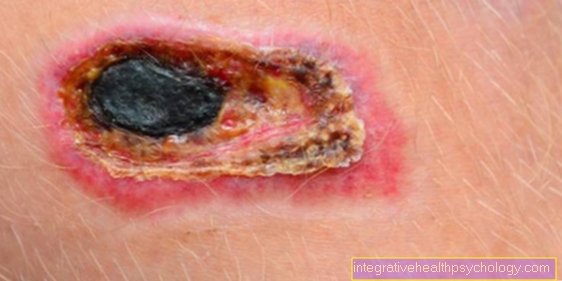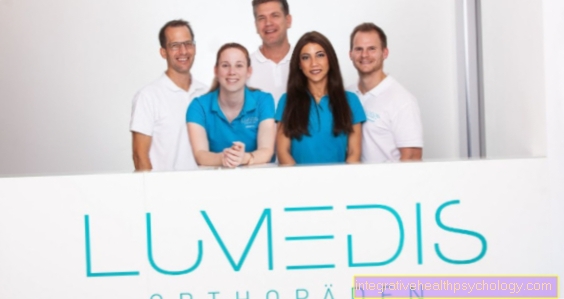MRI examination in Frankfurt - all practices and hospitals
Overview
Here you will find a summary of all institutions in Frankfurt am Main that offer MRI examinations, including details on the address, opening times and other useful data so that you can find a quick appointment for your MRI.
Did we forget a radiology department where you can do an MRI?
Let us know: mrt@
Thank you :-)
On this page you will also find information on how an MRI examination works, as well as its advantages and disadvantages.
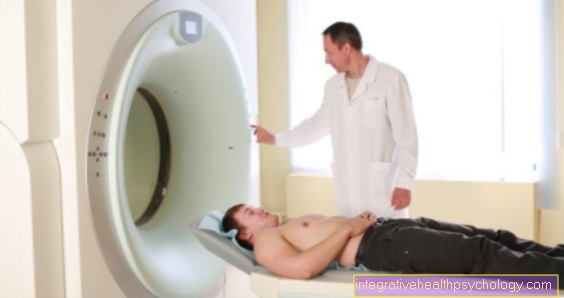
Bockenheimer Landstrasse
Radiological private practice
Dr. med. Catarina Jung
-
address:
Bockenheimer Landstrasse 23
60325 Frankfurt am Main -
Tel: 069/677016350
Fax: 069/677 016 399 -
Investigations:
- MRI
-
Homepage: https://radiologie-dr-jung.de
-
Appointments: by phone
Line
Radiological group practice
(Radiologist Andreas Boberg / Dr. Mirjam Rang)
-
Address:
Line 109
60313 Frankfurt am Main -
Telephone number: 069 - 28 28 61
-
Investigations
- MRI
- Ultrasonic
- roentgen
- Mammography
-
Homepage: www.roentgenpraxis-frankfurt.de
-
Appointments: by phone / online
Opera Square
MRI at Opernplatz / Private specialist practice for magnetic resonance tomography
(Team of 13 doctors)
address:
Grosse Bockenheimer Str. 30
60313 Frankfurt am MainPhone number: 069-13383998-0
Investigations:
- MRI
- Mammography
Homepage: www.mrt-am-opernplatz.de
Appointments: by phone
Adickesallee
Radiology Nuclear Medicine Adickesallee
(Medical care center, team of 16 doctors)
address:
Adickesallee 51- 53
60322 Frankfurt am MainPhone number: 069 - 959 616 -0
Investigations:
- MRI
- CT
- roentgen
- Scintigraphy
- Ultrasonic
- Mammography
- Radiosynoviorthesis
- biopsy
- Virtual colonoscopy
Homepage: www.radiologie-nuklearmedizin-adickesallee.de
Appointments: by phone
Mainzer Landstrasse
Supra-local group practice for radiology and nuclear medicine
(different locations, team of 18 doctors)
address:
Mainzer Landstrasse 191
60327 Frankfurt am MainPhone number: 069-758086-0
Investigations:
- MRI
- CT
- roentgen
- Ultrasonic
- Mammography
- Nuclear medicine
Homepage: www.mr-ct-frankfurt.de
Appointments: by phone (CallCenter)
Sachsenhausen
Radiology Sachsenhausen
(Dr. Boris Bauer / Dr. Uwe Berner)
-
address:
Schulstrasse 31
60594 Frankfurt am Main -
Phone number: 069 / 61 000 80
-
Investigations:
- MRI
- CT
- roentgen
- Ultrasonic
- Mammography
- Nuclear medicine
-
Homepage: www.radiologie-sachsenhausen.de
-
Appointments: by phone
Goethestrasse
Institute for Diagnostic Imaging / MRI Private Practice Goethestrasse
(Prof. Dr. Stehling and colleagues)
address:
Goethestrasse 2
60310 Frankfurt am MainPhone number: 069-50 50 00 950
Investigations:
- MRI
- CT
- Ultrasonic
- Mammography
- Check up programs
Homepage: www.radiologie-frankfurt-goethestrasse.de
Appointments: by phone
Opera Square
MRI at Opernplatz / Private specialist practice for magnetic resonance tomography
(Team of 13 doctors)
address:
Grosse Bockenheimer Str. 30
60313 Frankfurt am MainPhone number: 069-13383998-0
Investigations:
- MRI
- Mammography
Homepage: www.mrt-am-opernplatz.de
Appointments: by phone
Bethany Hospital
Radiology group practice at Bethanienkrankenhaus
(Team of 7 doctors)
address:
In the test item 23
60389 Frankfurt am MainPhone number: 069 - 94 50 54 0
Investigations:
- MRI
- CT
- roentgen
- Ultrasonic
- Mammography
- Nuclear medicine
Homepage: www.radiologie-frankfurt.de
Appointments: by phone / online
Clinics with MRT machine
In addition, it is often possible at the respective Institute of Radiology in Large Hospitals make an outpatient appointment for an MRI scan. For this it is important to do this with some lead time since it is here often long waiting lists and emergency or urgent examinations of inpatients have priority.However, due to the large capacities in the clinics and especially for very specific questions, this can still be a good alternative.
Below is a short list of a few Clinics in the Frankfurt area, which over at least one MRI machine with the respective addresses and telephone numbers:
Frankfurt Höchst Clinic
address:
Gotenstrasse 6-8
65929 Frankfurt am Main
Tel: 069 3106-2825
Homepage: www.klinikumfrankfurt.de
University Hospital Frankfurt
address:
Theodor-Stern-Kai 7
60590 Frankfurt am Main
Phone number.: 069 6301-87202
Homepage: www.radiologie-uni-frankfurt.de
Agaplesion Markus Hospital
address:
Wilhelm-Epstein-Strasse 4
60431 Frankfurt am Main
Phone number: 069 95 33 - 22 40
Homepage: www.markus-krankenhaus.de
Northwest Hospital
address:
Steinbacher Hollow 2-26
60488 Frankfurt am Main
Phone number.: 069 76 01- 34 48 or - 34 49
Homepage: www.krankenhaus-nordwest.de
Sankt Katharinen Hospital
address:
Seckbacher Landstrasse 65
60389 FrankfurtPhone number: 069 4603-1900 (MRI practice)
Homepage: www.sankt-katharinen-ffm.de
Agaplesion Bethanien Hospital
Organization and appointment allocation via the "Radiology group practice at Bethanienkrankenhaus" (see above)
Working principle
The abbreviation "MRT" stands for an examination which is carried out by a Magnetic resonance imaging (also called magnetic resonance imaging) is performed. This is an imaging procedure with which Sectional images of the human body. In contrast to roentgen- or Computed tomography examination (short: CT) requires magnetic resonance imaging no x-raysbut just a strong magnetic field.
In order to understand how this method of investigation works, a few must first physical principles explained. It is important to know here that every atom with an odd number of protons / neutrons has the property of rotating around itself. This phenomenon is called Spin designated, in German: Intrinsic angular momentum.
By the action of an external magnetic field, these charge carriers in the atoms can be directed in a certain direction due to the spin Atoms themselves act like small magnets. And this is exactly what happens with magnetic resonance imaging. By applying a strong external magnetic field, it is initially possible to transform said atoms in the human body into a certain one Longitudinal alignment bring to. The positive charges of the protons are oriented towards the negative side of the magnetic field. This can best be done on the hydrogen atom. Hence the MRI especially for water-containing tissues very suitable.
However, the longitudinal alignment of the atoms alone is not sufficient for a pictorial representation. A second step is necessary for this, which also requires a transverse force. This is the so-called High frequency pulsewhich causes a short displacement of the atoms from their longitudinal axis. Then the atoms go back into their longitudinal alignment (also: T1 relaxation) and give off energy in the form of heat to the environment.
It is precisely this heat that is used for imaging. This is tissue which fast thermal conductivity owns in T1 weighted Images rather bright (e.g. adipose tissue), while tissue with a lower thermal conductivity rather dark appears (e.g. liquids).
Plus there is still T2-weighted Pictures in which not the heat given off, but rather the Change in rotational movement during spin self decisive is. It is important to know that in such recordings liquids like water rather bright appear.
Due to the physical properties of magnetic resonance tomography mentioned, this examination is particularly suitable for tissues that contain a lot of fluid. Examples of this are fatty tissue, muscles, cartilage, internal organs, the brain, and tumors or foci of inflammation. For Tissue with little fluid like for example bone or a lot air like the lungs, for example, is this type of examination rather unsuitable.
advantages
The advantages of the MRI examination are certainly broad Representation of many tissues, the good image quality and the X-ray freedom. Children and pregnant women can therefore also have an MRI examination if they are asked.
disadvantage
The uncomfortable examination conditions are often mentioned as disadvantages, as the patients have to lie down in a very narrow tube that is also very noisy. In addition, this examination takes a relatively long time, so that the person examined usually has to lie down for 15 to 30 minutes (see: Duration of various MRI examinations). This is particularly uncomfortable for patients with claustrophobia, but it is entirely possible (see: MRI for claustrophobia).
The relatively strong magnetic field of 1.5 to 3 Tesla is also an exclusion criterion for people who wear any form of metal on or in the body. Wearers of pacemakers or other metal implants as well as metallic objects such as debit cards, keys or coins are therefore not allowed to enter the magnetic field.
Another disadvantage is the cost factor, since magnetic resonance imaging is many times more expensive than CT or X-ray (see: MRI costs).
In order to provide an overview of the possibilities for performing magnetic resonance imaging in Frankfurt, here is a summary of the most important addresses and key data on the respective institutes.




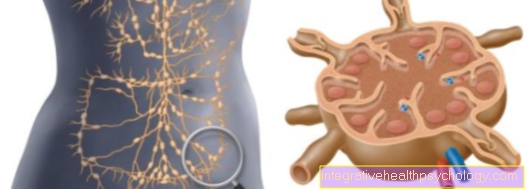
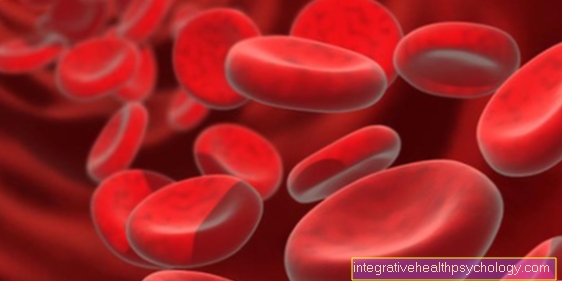



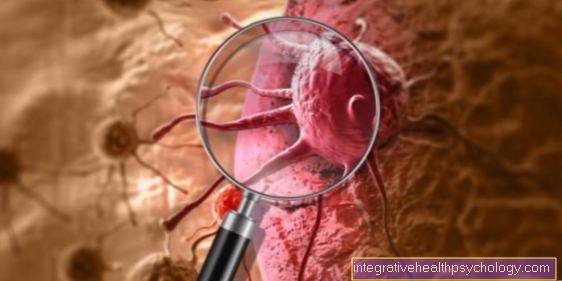



.jpg)



